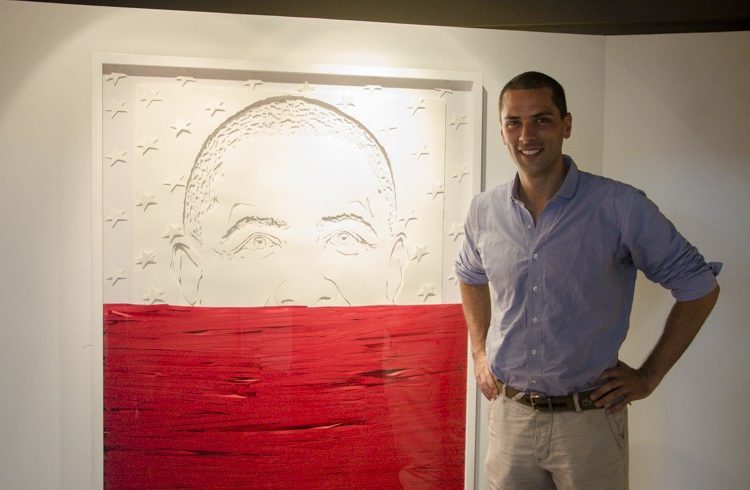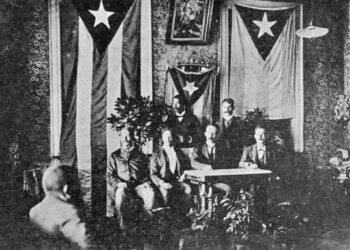On Tuesday OnCuba magazine received at its headquarters in Havana the Colombian journalist Ernesto Londoño, member of the editorial staff of The New York Times, one of the most influential newspapers in the United States.
For nearly three hours Londoño talked, asked and answered our questions. The same young man behind the six editorials American newspaper published recently on Cuba-US relationship, for six weeks in a row, will continue developing the theme, this time with a research carried out for fifteen days on the island.
Londoño asked about economic reforms and how it is possible to support the same socialist system project in the face of the changes taking place in the country; on the ideal of journalism in Cuba and freedom of expression, among many other topics. For our part, curiosity could not prevent editors, commercial staff and reporters from joining in a kind of collective interview.
Why does Londoño address the Cuba issue? Why with such passion?
“Someone wrote a gruesome piece in Martí Noticias and the first comment said” Londoño studied in Miami and probably a Cuban woman left him heartbroken “. To me Cuba was always interesting since I was a student in college. Obviously I had contact with the Cuban exile, did my internship in the Nuevo Herald, I wrote a bit on the Miami Herald, I was in Miami at the time of Elián González… And say that I always had this intellectual interest in its future and its past. During the nine years of my career I never had a chance to write about Cuba and Latin America. And when I started in The New York Times I expressed as an initiative to begin to address this issue. They loved the idea, since in recent years they have not been able to dedicate the space it deserves and trusted me because since I speak Spanish it would be a little easier to be aware of everything happening in Latin America.
At first the idea was to make just an editorial, but the reaction was very interesting and we decided to give it continuity. Like all newspapers, The New York Times has an interest in expanding its audiences and this is one of the mechanisms to attract more readers outside the United States, it gave us an idea of how we can expand in the region running this series in Spanish and English. Not that someone in the government or anyone with lobby interest has placed us subject. It arose spontaneously, organically, and has generated much interest; much debate and we feel that we can continue to nurture this process. ”
What were your impressions of the Cuba who you found now, ten years after your first visit?
“I have been here for just two days so that I cannot even have a full impression yet. But what most caught my attention is that are many businesses, many enterprising and creative people who have managed to develop major projects despite the challenges that still remain considerable. The other thing that struck me is that when I came last time was very difficult to have conversations about sensitive issues and for people to talk about problems with the government or on the day to day reality. At that time I felt it that way. Now I feel there are much freer spaces for people to express themselves¨
Why a visit to Cuba right now?
“The first editorial gathered much interest and generated debate and we consider that there is now a perfect confluence of circumstances for a rapprochement. We are in a position to offer suggestions, ideas, discuss issues that can foster a constructive, interesting dialogue, and can take this issue to a higher level in the radar. It is possible that political leaders on both sides take the opportunity to break ground. In the past there have been opportunities but they haven’t materialized. I think it will not be an easy relationship overnight, it will be very complex. But I think you can achieve more by way of constructive dialogue. And if we do help with that, we try to become a vehicle for generating significant achievements in this regard.
“The period between now and the Summit of the Americas can be important. It would be the first diplomatic forum in which US and Cuban leaders would meet. We try besides visible points where they can exchange more, to slow the antagonism that has characterized the Cuba-United States relations for decades. At the end, those who end up paying are the Cubans on both sides, insiders and exile, because while relations are cloudy it is harder to keep contact with the island, with the family. I believe that if we could create an atmosphere of greater connection, we can create more opportunities for all “.
Do you receive any kind of advice to address this issue?
“I have tried to make contact with everyone in this debate. Of course in the editorials we don’t explicitly mention interviews and sources, but it takes a lot of research and deep journalistic work. We cannot come and give an opinion based alone on our thoughts on the editorial board. Getting to Cuba and asking for two weeks to do journalism is exactly looking for that, go outside, find topics. I had the opportunity to meet with whomever I want. So far there has been no problem on that regard, no explicit or implied and hope it continues that way. ”
What about the criticism you have received in various US media and from Cuban dissidents on your visit to the island and the Granma newspaper´s headquarters?
“When we do opinion journalism review we always find opposing criteria. We must be respectful of the opinions against our own reviews. I think we expected it and I think it is valuable to have a dialogue and answer some of those critics. Usually I do it more from a constructive and respectful point of view. But it is clear that for many people Cuba is an issue rooted in the soul, with very strong opinions. I learn from these criticisms, it is valuable to hear them, analyze them. I do not run from them. ”
There is much talk about how important it would be for Cuba to normalize relations with the US, but for the latter it also would be a smart choice in many ways, especially when you consider its declining influence in Latin America that is now more inclined to the left. What could you comment on that?
“The US at geopolitical level is very isolated. At any given conference, any political participation, Cuba is always the thorn, the ever-present question, which generates controversy and discord. At the time when relations are normalized, Cuba would no longer be the case in which everyone is focused. I think the United States can have a much more friendly relationship with its neighbor. We could talk about economic, scientific, climate change, culture. There will always be differences, some tension, but I think that taking Cuba out of that equation would be very important for US diplomacy in the hemisphere. Furthermore, I believe that we are neighbors, and we should have more contacts, know each other, exchange ideas. Our point is that America should not design a political scheme here, as it tried to do in Afghanistan or Iraq. Historical results when the United States intends to be an agent of change show they have never worked. The interaction itself may be positive. ”
Is there a real public debate on the Cuba issue in the United States?
“I think we’ve raised the profile of the debate some. But there are still very mixed reviews. The editorial page of The Washingtong Post, where I worked before, has a very rigid position towards the Cuban government, and they think there cannot be a rapprochement, they consider it as concessions and that Cuba must first do more democratic reforms. The press in Miami is conditioned by the opinion of exile, although there have been changes, but predominates the influence of that generation of Cubans who was the first migration wave. But I think there are academics, young emigrants, political scientists, they are talking about and exploring different angles on this complicated relationship. ”
“Yesterday Spanish minister came the and according to El Pais he brings a message from the Obama administration, I have no details yet, but they are taking the foreign policy towards Cuba very seriously. I do believe that there is political will to explore changes, as soon as possible, but do not know how far can it go. Right now Congress is dominated by Republicans and there is a very adversarial relationship with the White House. There are other issues such as immigration reform that generate much controversy, or new wars in Iraq and Syria amid a complex process that dominates the attention of the highest levels in the country. But despite these other priorities, we want this time to be recognized as appropriate for a rapprochement between the two governments.”
Regarding our magazine, OnCuba, he expressed his best wishes for the project to continue growing and gaining space within the journalism that is done from the island. And on future issues of editorials on Cuba-US relations commented: “I can only advise you one thing: keep reading.”










